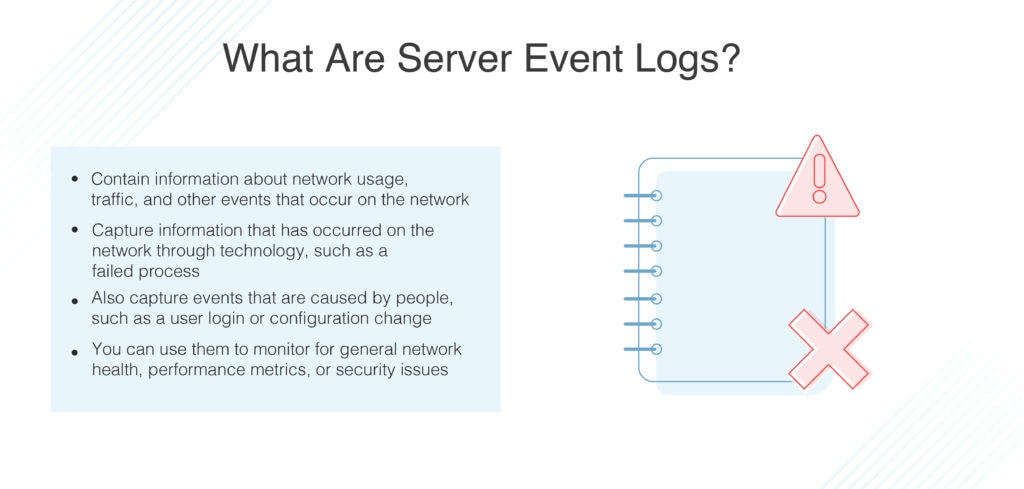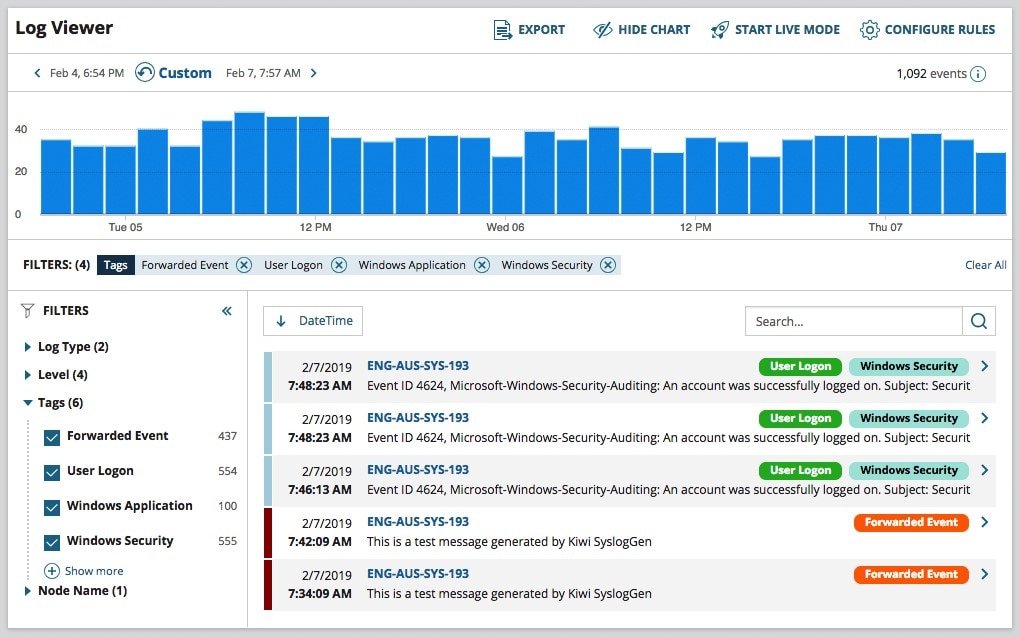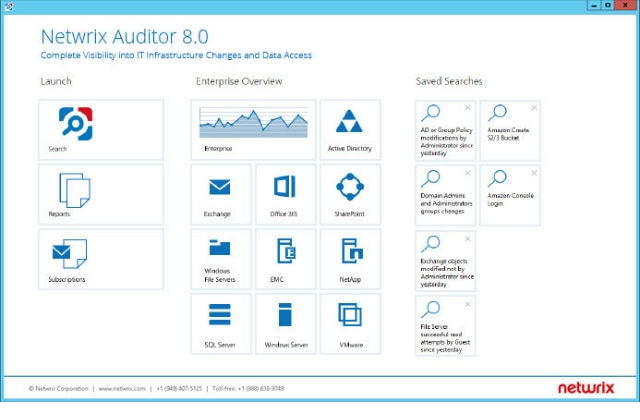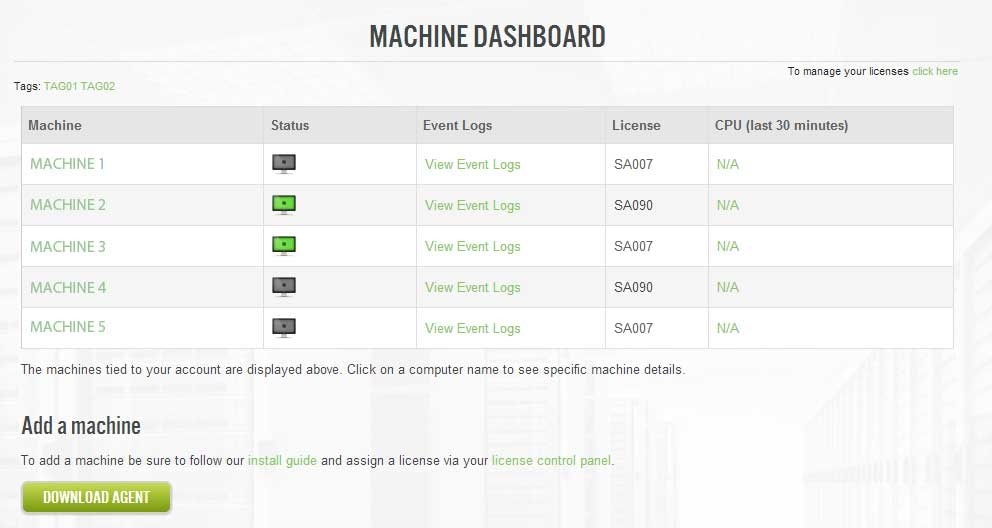Looking at the server event log is a critical part of taking care of your Windows servers and your network as a whole. Without keeping track of logs, you can miss important issues in your IT environment, and you won’t be able to troubleshoot problems as quickly. With server event log software, you can stay on top of network health, protect against security issues, and ensure configuration changes or user modifications don’t cause additional issues.
First, I’ll go through what the server event log is, and then I’ll explain how to check server event log files and what they mean. The question of how to read event viewer logs might sound like a simple one, but you have a few different options available. First and foremost, the process should be simple and clear, and I generally recommend using a log viewer tool like SolarWinds® Log Analyzer. I’ll go into more detail about why it’s important to use an automated tool in an enterprise setting, though small businesses may be able to carry out log management manually.

- What Are Server Event Logs?
- How to Check Server Event Log Files
- How to Choose an Event Viewer Log Analyzer Tool
What Are Server Event Logs?
An event log is a resource you can use when monitoring your Windows server or other types of servers in your network. Event logs contain information about network usage, traffic, and other events occurring on the network. You can use them to monitor for general network health, performance metrics, or security issues. Logs can capture information about things occurring on the network due to technology (such as a failed process or security issue) or events caused by people, such as a user login or a changed configuration. An “event log” stores this logged data for analysis, which can be performed manually or automated by using a tool.
When you’re using a Windows server on a large network, you generally need to use some kind of Windows event viewer. Logs can be difficult to go through manually, especially when you have many different devices or a network with a high traffic volume. I’ll go through how you can check server event log files for information and what kind of tools can help you do this.
How to Check Server Event Log Files
When considering how to check event viewer logs, there are two different approaches you can take: (1) manual or (2) using an event viewer log analyzer. In almost all cases, I suggest using an event viewer log analyzer tool. As I mentioned before, if you’re working in a small network or for a small business, manually viewing the event log could be acceptable. Windows includes an Event Viewer log reader tool designed to allow you to see information on errors, warnings, and successful or failed audits. In some cases, this may be enough for what you need, though in a large enterprise, it’s possible you need more information about your logs and what kind of events have occurred. There are many different tools capable of helping you, but some are higher quality than others or better suited to use in a large enterprise.
SolarWinds Log Analyzer

My top recommendation is SolarWinds Log Analyzer, as its numerous core features make it a strong choice for small to medium-sized businesses as well as large enterprises. This software is simple to use and provides event log collection and analysis tools as well as search and filtering functionality. This makes it easier to search back to when an issue occurred and filter logs by different types. With reports generated in real time, you can quickly spot problems and troubleshoot them before they impact your end users. It also integrates with the broader SolarWinds Orion® Platform, which means you can start small and easily expand to an integrated suite of products designed to help you manage monitoring and performance across your entire network.
Netwrix Auditor

Another good choice is Netwrix Auditor. This tool is a high-quality event viewer, log reader, and general analysis tool for event log management. Like Log Analyzer, it provides real-time log reports and alerts, and you can set particular events as “critical” to ensure you don’t miss a major issue. The storage and recording features of Netwrix Auditor are useful, and the tool allows you to compress and store logs for up to two years. Additionally, this solution allows you to video record screen activity to check for problems, even in applications that don’t produce any event logs.
SentinelAgent

Finally, consider SentinelAgent. This is a cloud tool providing monitoring as a service, and it’s designed for managed service providers and their logging needs. This creates a more hands-off approach, so you’ll only receive notifications if something goes wrong. Outsourcing to another company can give you less work to do, but it can also give you less oversight into your systems and their general health.
How to Choose an Event Viewer Log Analyzer Tool
Choosing one of the above tools (or another option) shouldn’t be too difficult, as all of them offer a free trial so you can test them out. The important thing is to remember to first test how the tool performs in your broader IT environment and consider whether it would integrate with your existing tools and applications. Furthermore, consider the payment plan and whether it would fit within your organization’s budget. For larger organizations, I always recommend a high-quality, professional tool, even if the cost is slightly higher. Professional tools designed for enterprise environments usually have better documentation and support, which means if there’s an issue, you can resolve it faster. As I mentioned before, my top choice is SolarWinds Log Analyzer, and you can try out a free trial of this tool for up to 30 days here.
